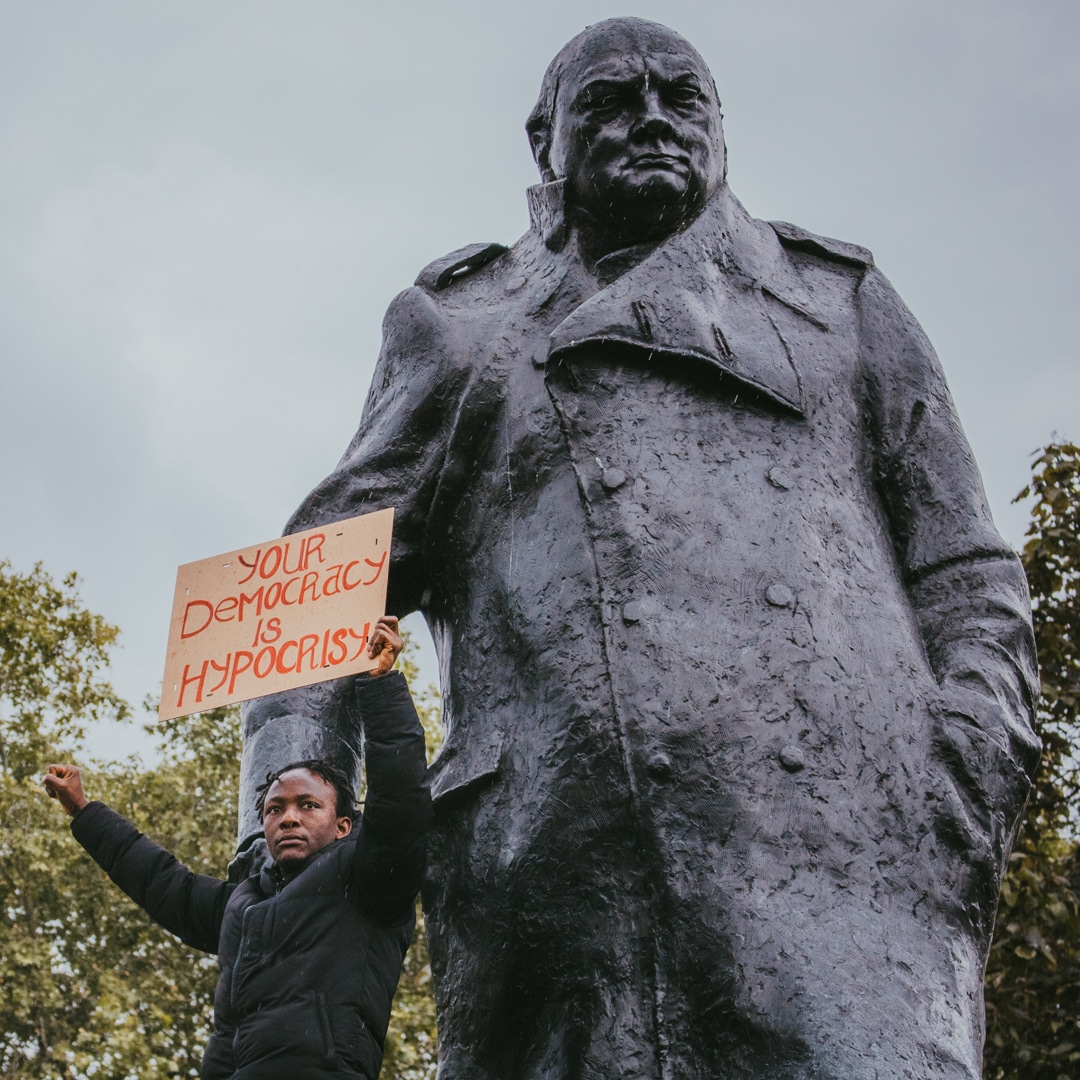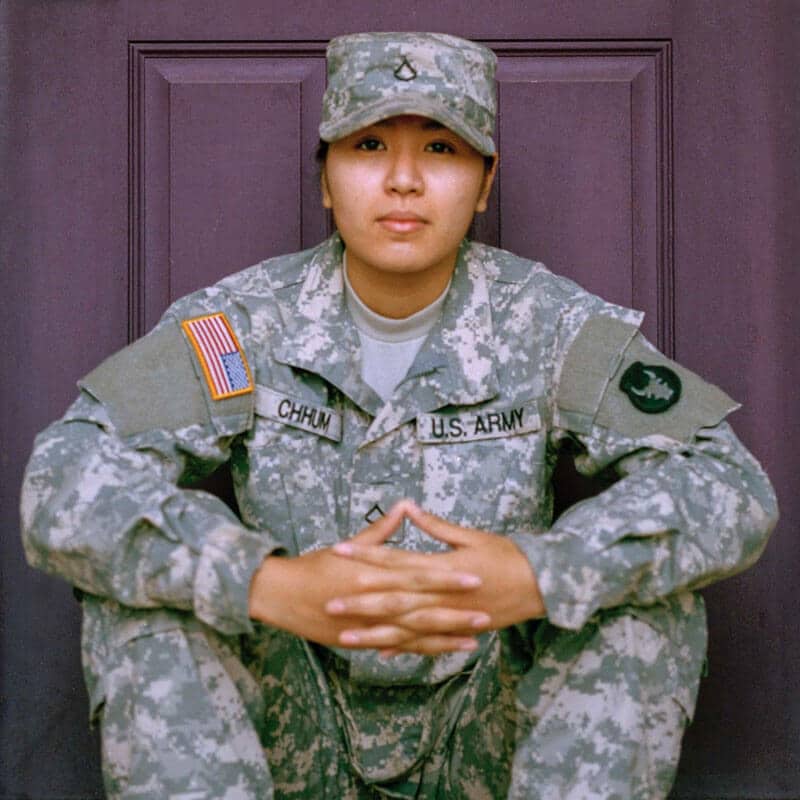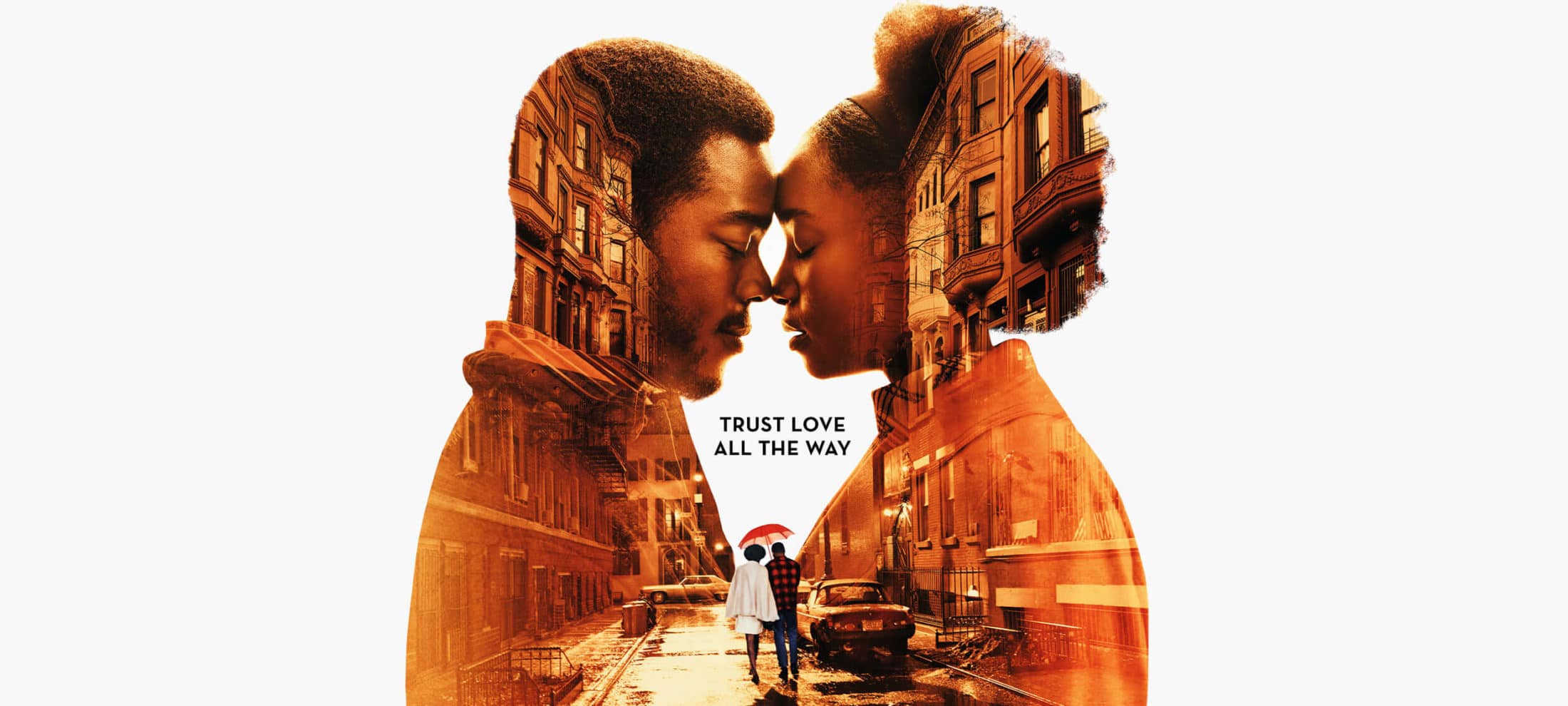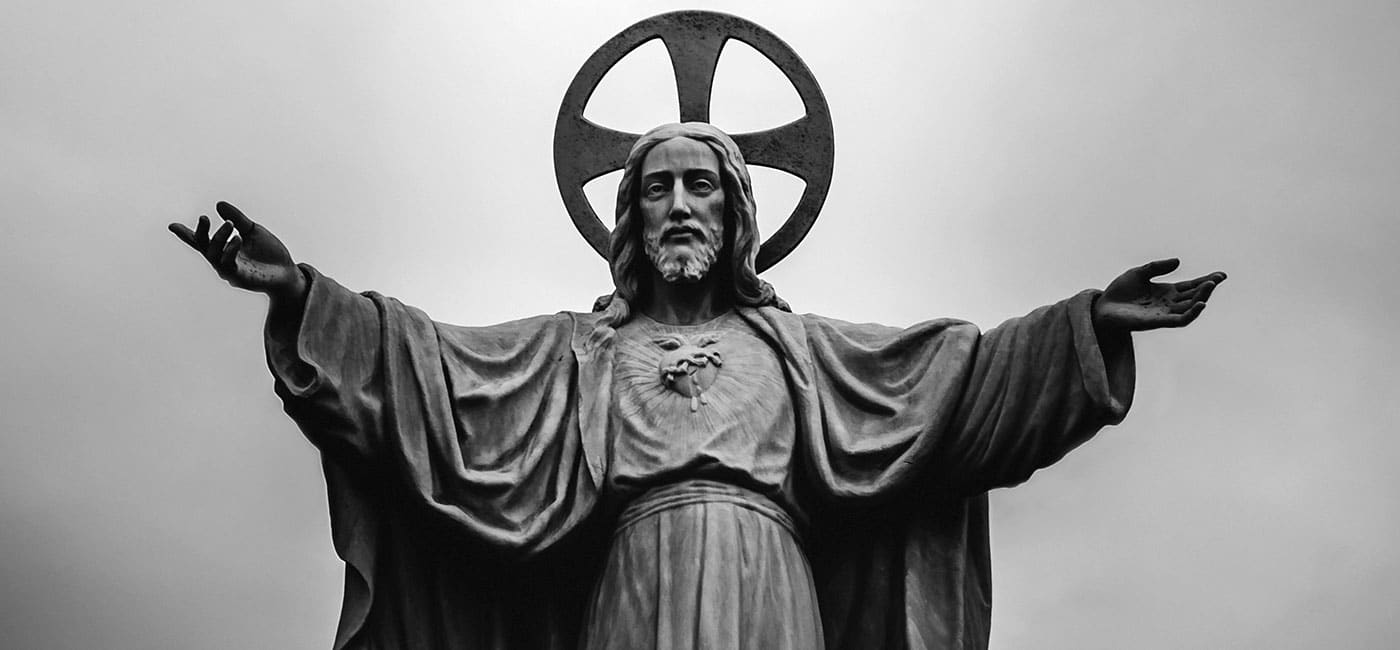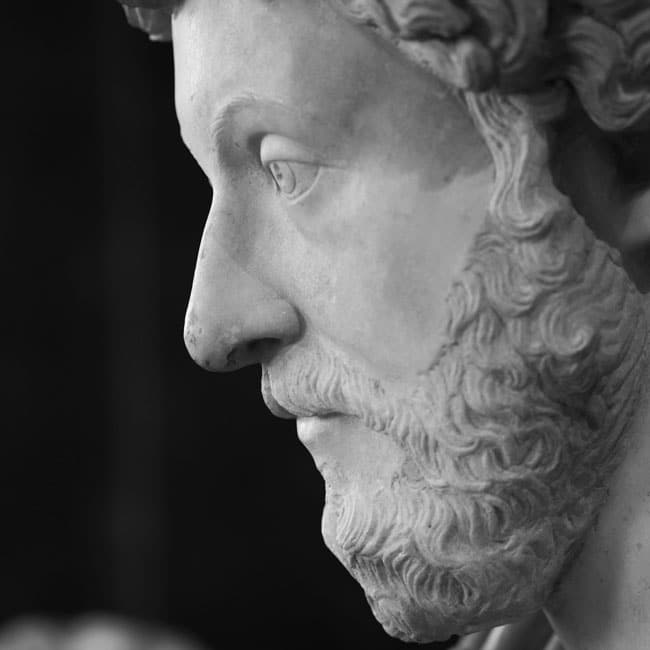What ethics should athletes live by?

What ethics should athletes live by?
Opinion + AnalysisHealth + WellbeingRelationships
BY The Ethics Centre 10 MAR 2019
Athletes are bound by multiple codes – including the formal rules of the games they play and the informal conventions that define what is deemed to be acceptable conduct.
Professional athletes are often bound by a more stringent code that governs many aspects of their public and private lives. In an era of social media and phone cameras, lucrative sponsorships and media rights, online sports betting and performance enhancing drugs, there is very little that isn’t regulated, measured or scrutinised.
The culture of sport
The formal rules of any game establish the minimum standards that bind players and officials equally in order to ensure a fair contest. Not surprisingly, the formal rules are relative to the sports that they define: you can tackle someone to the ground in a rugby match (provided they’re holding the ball), but it would be deemed unacceptable in tennis.
But there are also conventions and informal obligations that define the culture of sport. For example, most sports establish informal boundaries that seek to capture a spirit of good sportsmanship. The cricketer who refuses to “walk” after losing their wicket – or who delivers a ball under-arm – may not be breaking any formal rule, but they’ll be offending the so-called spirit of cricket.
The sanctions for such an offence may be informal, but may blight that player’s career.
A question of trust
In sport, the bottom line is trust. Sportspeople are stewards for the games they play – with an obligation not to destroy the integrity of the sports in which they participate. Athletes tend to be intensely competitive, seeking victory for themselves, for their team or sometimes their nation.
Professional sports sell themselves to the public on the basis that the contests are real and, hopefully, fair. Every time two teams or competitors walk out onto the field of play, they place so much at stake – far more than just the result of one game.
That is why evidence of match fixing, doping or cheating is so destructive – it destroys public trust in the veracity of the competition that people pay to watch. It damages the reputation of the sport. And it is ultimately self-defeating – always leaving doubt in the dishonest victor’s mind, denying forever the satisfaction of a honest win.
Ethics in your inbox.
Get the latest inspiration, intelligence, events & more.
By signing up you agree to our privacy policy
You might be interested in…
Opinion + Analysis
Relationships
Online grief and the digital dead
Opinion + Analysis
Relationships, Climate + Environment
Blindness and seeing
Opinion + Analysis
Health + Wellbeing, Relationships
Rationing life: COVID-19 triage and end of life care
Opinion + Analysis
Politics + Human Rights, Relationships, Society + Culture
The ethics of tearing down monuments
BY The Ethics Centre
The Ethics Centre is a not-for-profit organisation developing innovative programs, services and experiences, designed to bring ethics to the centre of professional and personal life.
How will we teach the robots to behave themselves?

How will we teach the robots to behave themselves?
Opinion + AnalysisScience + Technology
BY Simon Longstaff 5 MAR 2019
The era of artificial intelligence (AI) is upon us. On one hand it is heralded as the technology that will reshape society, making many of our occupations redundant.
On the other, it’s talked about as the solution that will unlock an unfathomable level of processing efficiency, giving rise to widespread societal benefits and enhanced intellectual opportunity for our workforce.
Either way, one thing is clear – AI has an ability to deliver insights and knowledge at a velocity that would be impossible for humans to match and it’s altering the fabric of our societies.
The impact that comes with this wave of change is remarkable. For example, IBM Watson has been used for early detection of melanoma, something very close to home considering Australians and New Zealanders have the highest rates of skin cancer in the world. Watson’s diagnostic capacity exceeds that of most (if not all) human doctors.
Technologists in the AI space around the world are breaking new ground weekly – that is an exciting testament to humankind’s ability. In addition to advancements in healthcare, 2018 included milestones in AI being used for autonomous vehicles, with the Australian government announcing the creation of a new national office for future transport technologies in October.
However, the power to innovate creates proportionately equal risk and opportunity – technology with the power to do good can, in almost every case, be applied for bad. And in 2019 we must move this conversation from an interesting dinner-party conversation to a central debate in businesses, government and society.
AI is a major area of ethical risk. It is being driven by technological design processes that are mostly void of robust ethical consideration – a concern that should be the top of the agenda for all of us. When technical mastery of any kind is divorced from ethical restraint the result is tyranny.
The knowledge that’s generated by AI will only ever be the cold logic of the machine. It lacks the nuanced judgment that humans have. Unless AI’s great processing power is met and matched with an equal degree of ethical restraint, the good it creates is not only lost but potentially damaging.The lesson we need to learn is this: just because we can do something doesn’t mean that we should.
Ethical knowledge
As citizens, our priority must be to ensure that AI works in the interests of the many rather than the few.
Currently, we’re naively assuming that the AI coders and developers have the ethical knowledge, understanding and skills to navigate the challenges that their technological innovations create.
In these circumstances, sound ethical judgment is just as important a skill as the ability to code effectively. It is a skill that must be learned, practised and deployed. Yet, very little ethical progress or development has been made in the curriculum to inform the design and development of AI.
This is a “human challenge” not a “technology challenge”. The role of people is only becoming more important in the era of AI. We must invest in teaching ethics as applied to technological innovation.
Building a platform of trust
In Australia, trust is at an all-time low because the ethical infrastructure of our society is largely damaged – from politics to sport to religious institutions to business. Trust is created when values and principles are explicitly integrated into the foundations of what is being designed and built. Whatever AI solution is developed and deployed, ethics must be at the core – consciously built into the solutions themselves, not added as an afterthought.
Creating an ethical technologically advanced culture requires proactive and intentional collaboration from those who participate in society: academia, businesses and governments. Although we’re seeing some positive early signs, such as the forums that IBM is creating to bring stakeholders from these communities together to debate and collaborate on this issue, we need much more of the same – all driven by an increased sense of urgency.
To ensure responsible stewardship is at the centre of the AI era, we need to deploy a framework that encourages creativity and supports innovation, while holding people accountable.
This story first appeared on Australian Financial Review – republished with permission.
MOST POPULAR
ArticleBeing Human
Putting the ‘identity’ into identity politics
ArticleHEALTH + WELLBEING
Parent planning – we should be allowed to choose our children’s sex
Article
Ethics Explainer: Respect
ArticleBeing Human
Praying for Paris doesn’t make you racist
BY Simon Longstaff
Simon Longstaff began his working life on Groote Eylandt in the Northern Territory of Australia. He is proud of his kinship ties to the Anindilyakwa people. After a period studying law in Sydney and teaching in Tasmania, he pursued postgraduate studies as a Member of Magdalene College, Cambridge. In 1991, Simon commenced his work as the first Executive Director of The Ethics Centre. In 2013, he was made an officer of the Order of Australia (AO) for “distinguished service to the community through the promotion of ethical standards in governance and business, to improving corporate responsibility, and to philosophy.” Simon is an Adjunct Professor of the Australian Graduate School of Management at UNSW, a Fellow of CPA Australia, the Royal Society of NSW and the Australian Risk Policy Institute.
Big Thinker: bell hooks
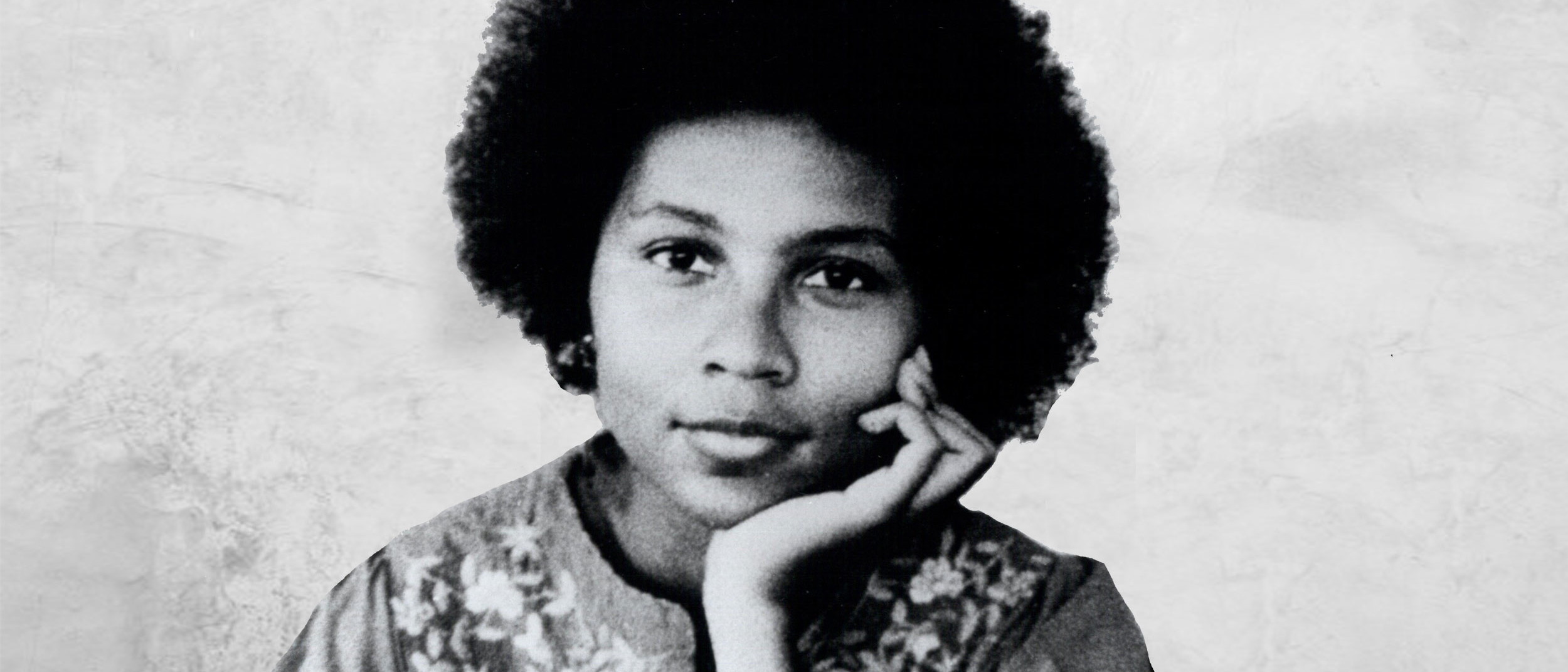
An outspoken professor, author, activist and cultural critic, bell hooks (1952-2021) drew attention to how feminism privileges white women’s struggles, while advocating for a more holistic way of understanding oppression.
Born Gloria Jean Watkins, bell hooks was a child who spoke back. Growing up in a segregated community of the south-central US state Kentucky, she fought against the ways in which her family and society sought to relegate her into a docile, black female identity. This refusal to be complicit in perpetuating her own oppression would define her life and career as a leader in black feminist thought.
It was when she first spoke back in public that she initially identified with her self-claimed moniker. An adult had dismissed her with a comparison to Bell Hooks, her maternal grandmother, in whose bold tongue and defiant attitude she found inspiration. She decapitalised the initials in order for others to focus on the substance of her ideas, rather than herself as a person.
hooks would become a prolific author and commentator. With notable titles including Talking Back, Ain’t I a Woman? and From Margin to Centre, her work scrutinises and challenges the ways in which media, culture and society uphold dominant oppressive structures.
Interlocking oppressions
A popular version of second wave feminism posited that all systems of oppression stemmed from patriarchy. This, hooks rejected. Instead, she introduced the idea that different types of oppression are interlocking and power is relational depending upon where you’re located on the matrix of class, sex, race and gender – which is not unlike the ideas underpinning the currently popular intersectional feminism.
hooks invented the term ‘imperialist white supremacist capitalist patriarchy’ to emphasise the multidimensionality of these power relations. She continues to use it today.
At the time, hooks’ paradigm was considered radical in that it undermined the notion there was a fundamentally common female experience. Many assumed this was vital for feminist solidarity to be forged and political unity maintained. Sisterhood was more complicated than that, hooks said – and to deny the uniqueness of each woman’s status and circumstance was another form of oppression.
Bold and to the point
While coming from academia, hooks strives to make her ideas easily accessible to a broad audience. Her writing style is free of jargon and often humorous, and she regularly appears in documentaries, open venues and television talk shows.
hooks is also renowned for focusing a sharp critical lens on popular culture, showing a strong opposition to political correctness. She’s criticised Spike Lee’s films, media coverage of the OJ Simpson trial and the lauded basketball documentary Hoop Dreams.
She also hasn’t held back her thoughts on prominent feminists.
hooks criticised Madonna for repudiating feminist principles by chasing stardom, and fetishising black culture in her film clips and live shows while reinforcing stereotypes of black men as violent primitives in a 1996 interview.
Twenty years later, she called the pop queen of lady power Beyoncé an ‘anti-feminist terrorist’, citing concern over the influence sexualised images of her have on young girls.
hooks also expressed disappointment Michelle Obama positioned herself as the nation’s ‘chief mum’, saying that by effacing her identity as an Ivy League educated lawyer, she was appeasing white hatred.
Oppositional gaze
Laura Mulvey introduced the theory of the ‘male gaze’ in the ’70s. It explains how images – particularly Hollywood mainstream images – are created to reproduce dominant male heteronormative ways of looking. hooks, who was fascinated with film as the most ‘efficient’ ideological propaganda tool, coined an associated term on black spectatorship: the ‘oppositional gaze’.
Looking has always been a political act, hooks argued. For subordinates in relations of power, looks can be “confrontational, gestures of resistance” which challenge authority. Had a black slave looked directly at a white person of status, they risked severe punishment – even death. Yet “attempts to repress our/black people’s right to gaze had produced in us an overwhelming longing to look, a rebellious desire, an oppositional gaze,” writes hooks.
“By courageously looking, we defiantly declared: ‘Not only will I stare. I want my look to change reality.’”
Black spectatorship of early Hollywood cinema was processed through this oppositional gaze. It was abundantly clear to these viewers, hooks writes, that film reproduced white supremacy. They saw nothing of themselves reflected in this white-washed fantasy realm. Black independent cinema emerged as an expression of resistance.
At the same time, hooks saw television and film as a site where black viewers were able to subject white representations to an interrogative gaze. Carried out in the privacy of the home or in a darkened cinema, this action also carried no risk of reprisal. That black men could look at white female bodies without fear was hugely significant – it was only 1955 when 14-year-old African American Emmett Till was lynched after being accused of offending a white woman in a Mississippi grocery store.
But while black male spectators “could enter an imaginative space of phallocentric power,” the experience of the black female spectator was vastly different, hooks writes. In both white and black productions, the male gaze still overdetermined screen images of women, and frequently idolised white female stars as the supreme objects of desire.
This continued the “violent erasure of black womanhood” in screen culture, making identification with any of the depicted subjects disenabling. While this denied black women the typical joys of watching, the fact that they “looked from a location that disrupted” meant that they could become “enlightened witnesses” through critical spectatorship.
Modern feminism in crisis
Despite the advances of women in the workplace, hooks nonetheless sees today’s feminism in a state of crisis. Firstly, she believes that we still haven’t addressed egalitarianism in the home, leaving women belittled and frustrated in heteronormative relationships.
She also believes that feminism today has lost its radical potential, in that it has converged too closely with radical individualism. Feminism does not mean that as a woman “you can do whatever you want, that you can have it all”, she says. Instead, if you’re to live inside a feminist framework, you need to undertake specific everyday actions. For this reason, hooks believes there are very few true living feminists.
Still, she remains a firm advocate of feminist politics, saying “My militant commitment to feminism remains strong…”
…and the main reason is that feminism has been the contemporary social movement that has most embraced self-interrogation. When we, women of color, began to tell white women that females were not a homogenous group, that we had to face the reality of racial difference, many white women stepped up to the plate. I’m a feminist in solidarity with white women today for that reason, because I saw these women grow in their willingness to open their minds and change the whole direction of feminist thought, writing and action.
This continues to be one of the most remarkable, awesome aspects of the contemporary feminist movement. The left has not done this, radical black men have not done this, where someone comes in and says, “Look, what you’re pushing, the ideology, is all messed up. You’ve got to shift your perspective.” Feminism made that paradigm shift, though not without hostility, not without some women feeling we were forcing race on them. This change still amazes me.
Ethics in your inbox.
Get the latest inspiration, intelligence, events & more.
By signing up you agree to our privacy policy
You might be interested in…
Opinion + Analysis
Relationships
You don’t like your child’s fiancé. What do you do?
Opinion + Analysis
Business + Leadership, Relationships
Beyond the headlines of the Westpac breaches
Opinion + Analysis
Business + Leadership, Relationships
There’s no good reason to keep women off the front lines
Opinion + Analysis
Relationships
Five steps to help you through a difficult decision
BY Kate Prendergast
Kate Prendergast is a writer, reviewer and artist based in Sydney. She's worked at the Festival of Dangerous Ideas, Broad Encounters and Giramondo Publishing. She's not terrible at marketing, but it makes her think of a famous bit by standup legend Bill Hicks.
BY The Ethics Centre
The Ethics Centre is a not-for-profit organisation developing innovative programs, services and experiences, designed to bring ethics to the centre of professional and personal life.
Film Review: If Beale Street Could Talk

Film Review: If Beale Street Could Talk
Opinion + AnalysisPolitics + Human RightsRelationshipsSociety + Culture
BY The Ethics Centre 14 FEB 2019
James Baldwin was one of the great American writers of the twentieth century.
His elegant, articulate and keenly perceptive work bore witness to the hostile, day-to-day realities in which African Americans lived, and the psychological implications of racism for society as a whole.
His fifth novel, If Beale Street Could Talk, is no exception. Forty-four years after it was published, Moonlight director Barry Jenkins has adapted it for the screen.
A different type of love story
A hypnotic, visually sumptuous and intimate love story, Beale Street has little of the structure of a traditional romance. The film begins, for instance, with the generic arc of courtship already complete. We first see the two young protagonists – Tish Rivers and her boyfriend Alfonzo ‘Fonny’ Hunt – walking slowly together in a park, their affections clear and perfectly mirrored. Growing up as childhood friends in the Bronx, there was never a time they did not love each other.
The story instead bears testimony to the resilience of love, and the strength it endows those who have faith in it. Here, we witness its many forms arrayed against a vast, malicious and coldly impersonal system which is rigged to destroy black lives and fracture the most precious of bonds.
Barely a minute into screen time, the plot throws Fonny (Stephan James) behind a glass wall. He’s in jail after being accused of rape. To his accuser and certainly the police, his innocence is irrelevant. As a black man, his identity in the white cultural imagination is as a violent savage – he was always-already condemned, regardless of his actions. It is through this transparent barrier that Tish (KiKi Layne) tells him that she is carrying his child.
When the past and present merge
Following this revelation, the story diverges in two interweaving streams of past and present. One, filled with hope and secret joys, sees the young couple come to understand each other as man and woman, while nursing dreams of a future together. In the second narrative, hope is not a simple impulse but an inviolable duty, as their baby swells in Tish’s womb, Fonny’s case stagnates and despair threatens. Each scene is freighted with the viewer’s knowledge that the lovers’ destiny is not their own.
Tish’s tale
This second narrative is also very much Tish’s story, and shifts its focus to a different kind of love. Beale Street is most affecting in its portrait of the Rivers family, who support Tish wholly and will do whatever they must to fight for her and the new life within her. Regina King won a Golden Globe for her portrayal of Tish’s mother Sharon, who embodies a fierce, calm and indominable maternal courage. Her father Joseph (played with a rich, growling warmth by Colman Domingo) and older sister Ernestine (Teyonah Parris) readily take on the role of advocate and defender.
Their unity has its foil in Fonny’s family, the Hunts, who refuse to partake in any struggle they did not ask for. Headed by a spiteful and Godfearing mother, who curses her unborn grandchild and rationalises prison as a place in which Fonny can find the Lord, theirs is a pride born of self-serving weakness. The Rivers’ contrasting pride is one born of unassailable dignity and a determination to act, in spite of the odds arrayed against them.
“What do you think is going to happen?” asks Mr Hunt when Joseph lays out a plan for them to steal from their workplaces to help their children.
“What we make happen.”
“Easy to say,” Hunt protests.
“Not if you mean it,” Joseph levelly responds.
Emotional explotation
Through these characters, Beale Street puts forward the case for love as the single most steadfast bastion against the dehumanising machine of systemic oppression. Those characters without this vital force are vulnerable to emotional exploitation – betraying family and friends to protect themselves. Hunt’s mother sacrifices her son rather than align herself with his fate.
Fonny’s old friend Daniel also deserts him when his words could have saved him, his integrity broken by the terror of returning to a prison that broke him. And Fonny’s accuser is so traumatised, she is locked in a prison of her own pain, insensible and insensitive the suffering of others.
None of these individuals are free. Living in a constant wash of fear without refuge or reprieve has deprived them of their integrity, transforming them into actively complicit agents in the perpetuation of a racist structure. This, Baldwin’s story reveals, is perhaps the most wretched and insidiously effective mechanism of tyranny.
Racial tensions
Daniel is sure that white man is the devil. But Beale Street itself doesn’t espouse this view. At crucial junctures, white allies take risks to intercede against social, economic, police and court racial injustice. A Jewish real estate agent grants the lovers a path to an affordable home. An old storekeeper stands up to a reptilian policeman. And Fonny’s lawyer is a ‘white boy just out of college’.
At two hours, the film is languid and poetic, with gorgeous cinematography by James Laxton. The deliberate slow pacing and the use of frequent close-ups demands of the viewer they recognise the central (and very beautiful) characters as subjects. In a culture which frequently effaces black bodies, fetishises them, or arbitrarily fashions them into villains, these images are quietly radical. The film plays out between the steady gaze of the two lovers, and plays within the gaze of an audience that can’t look away.
Quietly significant too, is the film’s inclusion of moments which are superfluous to the plot, but vital to the immersive legacy of Beale Street. One, impossible to forget: Tish’s parents swaying before a jazz record in the family loungeroom, holding each other close, smiling in the new knowledge of themselves as grandparents to be.
Final thoughts
Opening in Australia on Valentine’s Day, Jenkins’ film is a tender dream of two lovers trapped in a too-real nightmare. It is not difficult to remember that this nightmare still torments the freedoms of racial minorities in America, ‘the land of the free’, and other nations too – whether they characterise themselves as progressive democracies or not.
Ethics in your inbox.
Get the latest inspiration, intelligence, events & more.
By signing up you agree to our privacy policy
You might be interested in…
Opinion + Analysis
Society + Culture, Climate + Environment
Who’s to blame for overtourism?
Opinion + Analysis
Climate + Environment, Health + Wellbeing, Society + Culture
The five biggest myths of ethical fashion
Explainer
Relationships
Ethics Explainer: Particularism
Opinion + Analysis
Relationships
Why have an age discrimination commissioner?
BY The Ethics Centre
The Ethics Centre is a not-for-profit organisation developing innovative programs, services and experiences, designed to bring ethics to the centre of professional and personal life.
Australia Day: Change the date? Change the nation

Australia Day: Change the date? Change the nation
Opinion + AnalysisClimate + EnvironmentPolitics + Human Rights
BY Karen Wyld 24 JAN 2019
Like clockwork, every January Australians question when is, or even if there is, an appropriate time to celebrate the nationhood of Australia.
Each year, a growing number of Australians acknowledge that the 26thof January is not an appropriate date for an inclusive celebration.
There are no sound reasons why the date shouldn’t be changed but there are plenty of reasons why the nation needs to change.
I’ve written about that date before, its origins and forgotten stories and recent almost-comical attempts to protect a public holiday. I choose not to repeat myself, because the date will change.
For many, the jingoism behind Australia Day is representative of a settler colonialism state that should not be preserved. A nation that is not, and has never been fair, free or young. So, I choose to put my energy into changing the nation. And I am not alone.
People are catching up and contributing their voices to the call to change the nation, but this is not a new discussion. On 26 January 1938, on the 150thanniversary of the British invasion of this continent, a group of Aboriginal people in NSW wrote a letter of protest, calling it a Day of Mourning. They asked the government to consider what that day meant to them, the First Peoples, and called for equality and justice.
Since 1938, the 26thof January continues to be commemorated as a Day of Mourning. The date is also known as Survival Day or Invasion Day to many. Whatever people choose to call that day, it is not a date suitable for rejoicing.
It was inconsiderate to have changed the date in 1994 to the 26th January. And, now the insensitivity is well known, it’s selfish not to change the date again. The only reasons I can fathom for opposition to changing the date is white privilege, or perhaps even racism.
These antiquated worldviews of white superiority will continue to haunt Australia until a critical mass has self reflected on power and privilege and whiteness, and acknowledges past and present injustices. I believe we’re almost there – which explains the frantic push back.
A belief in white righteousness quietened the voices of reason and fairness when the first fleet landed on the shores of this continent. And it enabled colonisers and settlers to participate in and/or witness without objection decades of massacres, land and resource theft, rape, cultural genocide and other acts of violence towards First Peoples.
The voice of whiteness is also found in present arguments, like when the violence of settlement is justified by what the British introduced. It is white superiority to insist science, language, religion, law and social structures of an invading force are benevolent gifts.
First Peoples already had functioning, sophisticated social structures, law, spiritual beliefs, science and technology. Combining eons of their own advances in science with long standing trade relations with Muslim neighbours, First Peoples were already on an enviable trajectory.
Tales of white benevolence, whether real or imagined, will not obliterate stories of what was stolen or lost. Social structures implanted by the new arrivals were not beneficial for First Peoples, who were barred from economic participation and denied genuine access to education, health and justice until approximately the 1970s.
Due to systemic racism, power and privilege, and social determinants, these introduced systems of justice, education and health still have entrenched access and equity barriers for Aboriginal and Torres Strait Islander people.
Changing the nation involves settler colonialists being more aware of the history of invasion and brutal settlement, as well as the continuing impact on Aboriginal and Torres Strait Islander peoples. It involves an active commitment to reform, which includes paying the rent.
The frontier wars did not result in victory for settler colonialists, because the fight is not over. The sovereignty of approximately 600 distinctly different cultural/language groups was never ceded. Despite generations of violence and interference from settler colonialists, First Peoples have not been defeated.
“You came here only recently, and you took our land away from us by force. You have almost exterminated our people, but there are enough of us remaining to expose the humbug of your claim, as white Australians, to be a civilised, progressive, kindly and humane nation.”
‘Aborigines Claim Citizen Rights!: A Statement of the Case for the Aborigines Progressive Associations’, The Publicist, 1938, p.3
Having lived on this continent for close to 80,000 years and surviving the violence of colonisation and ongoing injustices of non-Indigenous settlement, the voices of First Peoples cannot be dismissed. The fight for rights is not over.
The date will change. And, although it will take longer, the nation will change. There are enough still standing to lead this change – so all Australians can finally access the freedoms, equality and justice that Australia so proudly espouses.
Karen Wyld is an author, living by the coast in South Australia
MOST POPULAR
ArticleBeing Human
Putting the ‘identity’ into identity politics
ArticleHEALTH + WELLBEING
Parent planning – we should be allowed to choose our children’s sex
Article
Ethics Explainer: Respect
ArticleBeing Human
Praying for Paris doesn’t make you racist
Big Thinker: Henry Thoreau
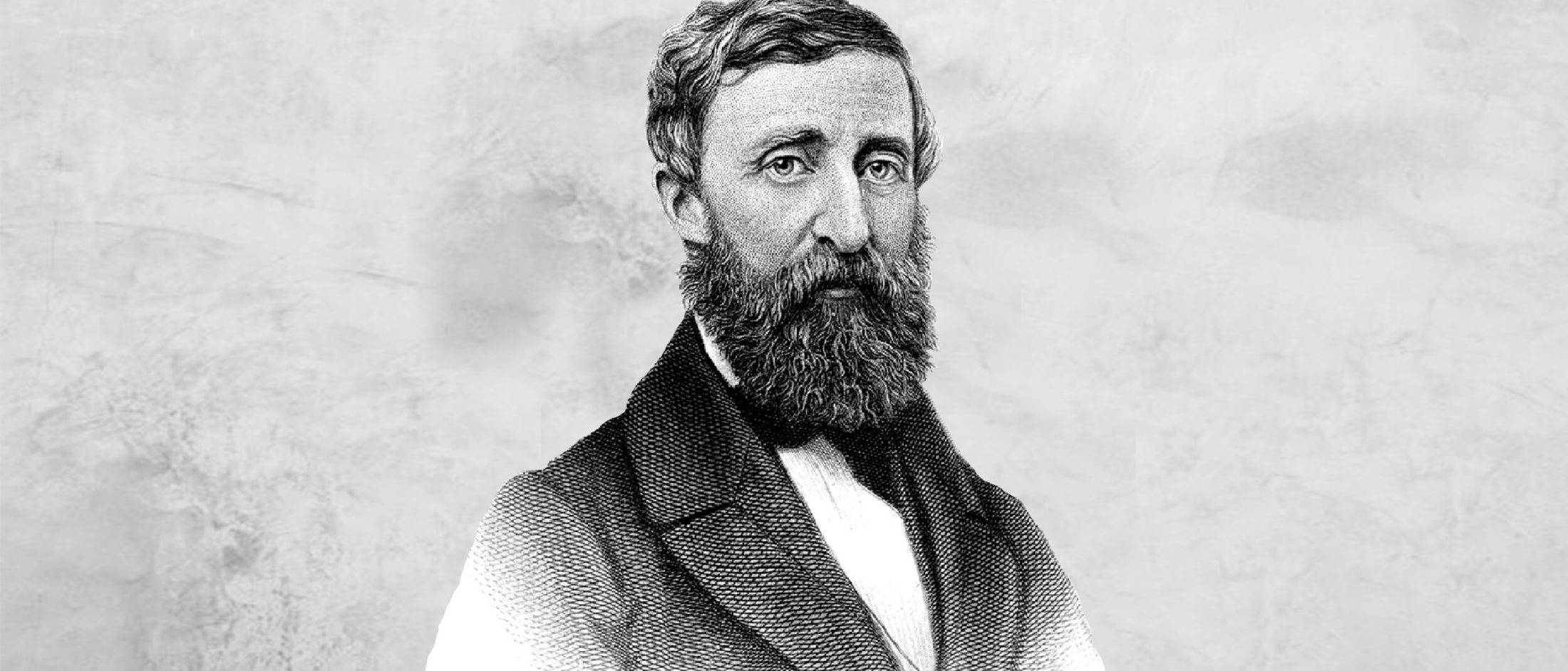
A tax evader, rebel philosopher and the grandfather of environmentalism, Henry Thoreau (1817—1862) practiced a back-to-nature experience of the natural world while opposing authority.
Though enjoying no great acclaim in his lifetime, today the name Henry David Thoreau resonates across philosophy, literature, political history, natural history and environmental science. His spirit of non-conformity, his rugged individualism and his ‘essentialist’ approach to living, have seen him mythologised as an American hero – and an ancestor of various ‘return to nature’ movements, too.
The son of a pencil maker, Thoreau was born in 1817 in Massachusetts, US. He demonstrated free minded dissent for institutions early in life. While at Harvard, he allegedly refused to pay for his diploma certificate. In his subsequent role as teacher, he rejected a recommendation for corporal punishment – by thrashing a random group of students to make a point, then resigning. Later, he would refuse to pay six years’ taxes. He saw it as surrendering his money to fund slavery and the government’s war in Mexico, both of which he vigorously opposed. For this, he was thrown in jail.
Civil Disobedience
Thoreau’s spirit of resistance coalesced in the libertarian manifesto Civil Disobedience. Unjust governments have no right bending citizens to their arbitrary laws and corrupt systems, he argued in the book. A free, enlightened state was only possible once that state “recognised the individual as a higher and independent power”, and enabled them to be “men first, and subject after”.
Rather than meekly obey, Thoreau said he was obliged “to do at any time what I think right” – even if that meant breaking the law. This idea of self-governance by individual conscience would later inspire Gandhi, Martin Luther King and others who took a principled stance against unjust rule.
It has also been widely critiqued. Violent and bigoted acts can, after all, easily be committed under the banner of self-righteousness. And what if two people divided on a matter by ideology or faith can’t settle their differences?
Lines in Civil Disobedience like, “That government is best which governs not at all” also make some question whether Thoreau’s libertarian politics tended towards anarchism.
Simple living, transcendentalism and the Walden experiment
A fellow resident of his home town, Ralph Waldo Emerson was a pivotal influence on Thoreau. He introduced Thoreau to transcendentalism – a movement which reacted against religious and intellectual trends, and enjoined each individual to forge their own “original relation to the universe”. Thoreau became a key figure in the movement. For him, solitude, simplicity, awareness and harmonious engagement with the wild were concrete ways to forge this relation. His philosophy as well as his science, insisted upon embodied understanding, rather than just a contemplative or discursive one.
In a forest cabin lent to him by Emerson, Thoreau conducted an experiment in simple living which would last two years and two months. His methods and reflections during this time became the classic work Walden – named after a pond which abutted the property. In it, with poetic eloquence, didacticism and free wheeling style, he lays out his view of a resigned, frivolous and wretched humanity, and how one is to instead rise above and “live deliberately”.
To achieve an existence which is pure and meaningful, Thoreau argued a life must be cultivated free from illusion and excess. He practiced a style of subsistence living through radical self-denial. Only essential needs were identified and met. A plausible misanthrope, he forswore conversation, sensuality, coffee, meat and alcohol, advising just one meal a day. To relinquish to the slightest temptation was to open the gates to moral disrepair. He even eschewed a doormat, “preferring to wipe my feet on the sod before my door.”
According to the American author John Updike, “Waldenhas become such a totem of the back-to-nature, preservationist, anti-business, civil-disobedience mindset, and Thoreau so vivid a protester, so perfect a crank and hermit saint, that the book risks being as revered and unread as the Bible”.
Kathryn Schulz reads Thoreau’s hermitage as rather a renunciation of responsibility, and categorises it as “original cabin porn”.
“Being forever on the alert”
Shorn of distractions, purged of indulgences, Thoreau believed a greater awareness of the universe can bloom. But more vital to his philosophy was an “ethics of perception” – requiring rigorous attentiveness to the outside world as it was uniquely registered on the senses. This could be observing a sunset’s reflection on glass, or the miniaturised battle of ants. Through this expanded and intensified focus, man was empowered to elevate his life, in “infinite expectation of the dawn”.
A surveyor by trade, Thoreau said we must consciously endeavour to practice “the discipline of looking […] at what is to be seen”.He was suspicious of orthodox forms of knowledge and believed the “essential facts of life” come to us through “the perpetual instilling and drenching of the reality that surrounds us”. Truth, then, was deeply individualised communion between self and world, and the product of intuition and revelation, rather than logic or reason.
Natural as intrinsically valuable
Thoreau’s ideas around nature’s intrinsic value have had significant bearing on modern conservationism. The sublime beauty and order that could be perceived in natural phenomena were not, he thought, qualities projected onto it by humans. They were immanent. What’s more, “Whatever we have perceived to be in the slightest degree beautiful is of infinitely more value to us than what we have only as yet discovered to be useful and to serve our purpose”.
In other words, nature cannot be commodified. Priceless, it must be viewed on its own terms, rather than as a resource to serve human agendas and needs. His view was diametrically opposed to the anthropocentricism that characterised the industrial revolution’s frenzied assault upon lands and oceans, which would culminate in the raft of ecological crises facing us today.
Thoreau also drew attention to the hidden benefits and invisible services of plant and animal species. In one example, he considered the squirrel. To the average American, they were a pest. But if we recognised squirrels in a broader ecosystem context, we could honour them as “planters of forests”, noble little workers whose free labour humans couldn’t do without.
Thoreau recognised, too, that our ignorance of these hidden benefits makes us careless. Trampling over nature’s bounty, upending its fragile balance, we are liable to do untold damage – for which we may ourselves pay a dear cost. In this sense, he was prescient.
“I should be glad if all the meadows on the earth were left in a wild state,” he wrote, “if that were the consequence of men’s beginning to redeem themselves.”
Ethics in your inbox.
Get the latest inspiration, intelligence, events & more.
By signing up you agree to our privacy policy
You might be interested in…
Opinion + Analysis
Relationships, Climate + Environment
Blindness and seeing
Opinion + Analysis
Climate + Environment, Politics + Human Rights
Who is to blame? Moral responsibility and the case for reparations
Opinion + Analysis
Climate + Environment, Relationships
“Animal rights should trump human interests” – what’s the debate?
Opinion + Analysis
Climate + Environment, Health + Wellbeing
Donation? More like dump nation
BY Kate Prendergast
Kate Prendergast is a writer, reviewer and artist based in Sydney. She's worked at the Festival of Dangerous Ideas, Broad Encounters and Giramondo Publishing. She's not terrible at marketing, but it makes her think of a famous bit by standup legend Bill Hicks.
Is it time to curb immigration in Australia?

Is it time to curb immigration in Australia?
Opinion + AnalysisClimate + EnvironmentPolitics + Human Rights
BY The Ethics Centre 24 JAN 2019
To curb or not to curb immigration? It’s one of the more polarising questions Australia grapples with amid anxieties over a growing population and its impact on the infrastructure of cities.
Over the past decade, Australia’s population has grown by 2.5 million people. Just last year, it increased by almost 400,000, and the majority – about 61 percent net growth – were immigrants.
Different studies reveal vastly different attitudes.
While Australians have become progressively more concerned about a growing population, they still see the benefits of immigration, according to two different surveys.
Times are changing
In a new survey recently conducted by the Australian National University, only 30 percent of Australians – compared to 45 percent in 2010 – are in favour of population growth.
The 15 percent drop over the past decade is credited to concerns about congested and overcrowded cities, and an expensive and out-of-reach housing market.
Nearly 90 percent believed population growth should be parked because of the high price of housing, and 85 percent believed cities were far too congested and overcrowded. Pressure on the natural environment was also a concern.
But a Scanlon Foundation survey has revealed that despite alarm over population growth, the majority of Australians still appreciate the benefits of immigration.
In support of immigration
In the Mapping Social Cohesion survey from 2018, 80 percent believed “immigrants are generally good for Australia’s economy”.
Similarly, 82 percent of Australians saw immigration as beneficial to “bringing new ideas and cultures”.
The Centre for Independent Studies’ own polling has shown Australians who responded supported curbing immigration, at least until “key infrastructure has caught up”.
In polling by the Lowy Institute last year, 54 percent of respondents had anti-immigration sentiments. The result reflected a 14 percent rise compared to the previous year.
Respondents believed the “total number of migrants coming to Australia each year” was too high, and there were concerns over how immigration could be affecting Australia’s national identity.
While 54 percent believed “Australia’s openness to people from all over the world is essential to who we are as a nation”, trailing behind at 41 percent, Australians said “if [the nation is] too open to people from all over the world, we risk losing our identity as a nation”.
Next steps?
The question that remains is what will Australia do about it?
The Coalition government under Scott Morrison recently proposed to cap immigration to 190,000 immigrants per year. Whether such a proposition is the right course of action, and will placate anxieties over population growth, remains to be seen.
Join us
We’ll be debating IQ2: Immigration on March 26th at Sydney Town Hall, for the full line-up and ticket info click here.
MOST POPULAR
ArticleBeing Human
Putting the ‘identity’ into identity politics
ArticleHEALTH + WELLBEING
Parent planning – we should be allowed to choose our children’s sex
Article
Ethics Explainer: Respect
ArticleBeing Human
Praying for Paris doesn’t make you racist
BY The Ethics Centre
The Ethics Centre is a not-for-profit organisation developing innovative programs, services and experiences, designed to bring ethics to the centre of professional and personal life.
Ethics Explainer: Aesthetics

Aesthetics is the philosophical study of art. If you think about what is enjoyable, or valuable about artworks, and why art is important, then you are considering issues to do with aesthetics.
The study of aesthetics is tricky because there are so many different kinds of artworks and it is difficult to think about what they have in common or how they should be categorised or judged. A seminal question in the field of aesthetics is ‘what is art?’ – how ought art be defined? And this question alone has various answers depending on which theory is being applied.
Art defined.
Art includes sculpture, painting, plays, films, novels, dance and music. And it isn’t always clear what the category of art excludes – in large part because artists are always pushing boundaries. The creative nature of art sees works or objects being considered as ‘Art’ that provoke shock, outrage, censorship or exclamations of ‘That’s not Art!’.
Just think about the first time Marcel Duchamp tried to display an artwork called ‘Fountain’ in 1917. The urinal, a ‘found object’ was signed by the artist ‘R. Mutt, 1917’, and caused a riot of disagreement as to whether art must be created or made with one’s own hands or whether it can be intentionally chosen and displayed.
Is it the creation or the reception of the artwork that matters the most?
Who decides whether something is a work of art? Is it ‘the artworld’ of experts and critics? Is it the artist? Or is it the viewer? Many viewers may not understand what they are seeing or may not truly appreciate the skill involved in creating a particular artwork.
For instance, the first time one looks at a Rothko painting, which may appear as a blank canvas painted with a couple of coloured squares, a viewer may think, ‘I could have painted that!’ It is only with an understanding of Rothko’s technique that one may start to appreciate the effort he put in to create it.
And even if we appreciate the skill and effort an artist exerts, we may or may not feel any particular ‘aesthetic experience’ when looking at a piece of abstract or contemporary art, while watching an opera, or while reading a novel by Dostoevsky.
An individual perspective
One’s experience of art is subjective as individual tastes differ. And yet, if we are to claim that some artworks are better than others, or explain why some artworks stand the test of time and are valued by generations, we need to refer to some standards by which to judge them. Are there any features artworks must have to be considered as art? Should artworks be beautiful? Do they need to be moral? And who decides whether or not they meet this criteria?
Despite the historical interference by political and religious leaders who worry about the influence art may have in a society, debates as to what constitutes good art, aesthetically and even morally, has been a matter for debate for aestheticians.
Sometimes it takes time for something to be considered art, let alone to be considered aesthetically valuable. Think about Banksy’s graffiti art. It has been the case that unsuspecting council workers have removed graffiti from the side of a building only to later discover they have inadvertently eliminated a valuable artwork. And yet, not all graffiti is considered art or deemed valuable.
In fact, the opposite is true!
What makes Banksy an exception?
View this post on Instagram. "The urge to destroy is also a creative urge" – Picasso
A post shared by Banksy (@banksy) on
Definitions of art have changed over time. Traditional views of art usually cited ‘beauty’ as an important feature of artworks, but that has since altered. Indeed, is one meant to find the displayed urinal ‘beautiful’? An artwork need not be beautiful to be skilfully executed, meaningful and valuable.
The value of art in society
The defenders of art and its unique role in society usually claim art should be valued for its own sake. Aesthetic value is not to be valued instrumentally, for its financial value or for its status, or even for what we can learn from it or because it is deemed morally ‘good’. It may do any and/or all of these things, or none! Art is valuable because it affords an aesthetic experience.
In its creation and reception, as a form of self expression, imaginative engagement, cognitive as well as affective experience, source of individual and social reflection and contemplation, art has always been central to human life. If it is true that the arts capture and express something unique, and aesthetic experience is intrinsically valuable, then we should consider the place for the arts in society and support and value artists for the important contribution they make.
Dr Laura D’Olimpio is a senior lecturer in philosophy of education at the University of Birmingham, UK.
MOST POPULAR
ArticleBeing Human
Putting the ‘identity’ into identity politics
ArticleHEALTH + WELLBEING
Parent planning – we should be allowed to choose our children’s sex
Article
Ethics Explainer: Respect
ArticleBeing Human
Praying for Paris doesn’t make you racist
BY Dr Laura D’Olimpio
Dr Laura D’Olimpio is senior lecturer in philosophy of education at the University of Birmingham, UK, and co-edits the Journal of Philosophy in Schools.
BY ethics
Limiting immigration into Australia is doomed to fail

Limiting immigration into Australia is doomed to fail
Opinion + AnalysisClimate + EnvironmentPolitics + Human Rights
BY Gordon Young 17 JAN 2019
Few topics bridge the ever widening divide between both sides of politics quite like the need to manage population growth.
Whether it’s immigration or environmental sustainability, fiscal responsibility or social justice. That the global population breached 7.5 billion in 2017 has everyone concerned.
We are at the point where the sheer volume of people will start to put every system we rely on under very serious stress.
This is the key idea motivating the centrist political party Sustainable Australia. Led by William Bourke and joined by Dick Smith, the party advocates for a non-discriminatory annual immigration cap at 70,000 persons, down from the current figure of around 200,000 – aimed at a “better, not bigger” Australia.
Join the first IQ2 debate for 2019, “Curb Immigration”. Sydney Town Hall, 26 March. Tickets here.
While the party has been accused of xenophobic bigotry for this stance, their policy makes clear they are not concerned about an immigrant’s religion, culture, or race. Their concern is exclusively for the stress greater numbers of migrants will place on Australia’s infrastructure and environment.
It is a compelling argument. After all, what is the point of the state if not to protect the interests of its citizens?
A Looming Problem
We should be concerned with the needs and interests of our international neighbours, but such concerns must surely be strictly secondary to our own. When our nearest neighbour has approximately ten times our population, squeezed into a landmass twenty five per cent Australia’s size, and ranks 113 places behind us in the Human Development Index, one can be forgiven for believing that limited immigration is critical for ongoing Australian quality of life.
This stance is further bolstered by the highly isolated, and therefore vulnerable nature of Australia’s ecosystem. Australia has the fourth highest level of animal species extinction in the world, with 106 listed as Critically Endangered and significantly more as Endangered or Under Threat.
Much of this is due to habitat loss from human encroachment as suburbs and agricultural lands expand for our increasing needs. The introduction of foreign flora and fauna can be absolutely devastating to these species, greatly facilitated by increased movement between neighbour nations (hence the virtually unparalleled ferocity of our quarantine standards).
While the nation may be a considerable exporter of foodstuffs, many argue Australia is already well over its carrying capacity. Any additional production will be degrading the land and our ability to continue growing food into the future.
The combination of ecological threats and socio-economic pressure makes the argument for limiting immigration to sustainable numbers a powerful one.
But it is absolutely doomed to failure.
Fortress Australia
If the objective of limiting immigration to Australia is both to protect our environment and maintain high quality of life, “Fortress Australia” will fail on both fronts. Why?
Because it does nothing to address the fundamental problem at hand. Unsustainable population growth in a world of limited resources.
Immigration controls may indeed protect both the Australian quality of life and its environment for a time, but without effective strategic intervention, the population burden in neighbouring countries will only continue to grow.
As conditions worsen and resources dwindle, exacerbated by the impacts of anthropogenic climate change, citizens of those overpopulated nations will seek an alternative. What could be more appealing than the enormous, low-density nation with incredibly high quality of life, right next door to them?
If a mere 10 percent of Indonesians (the vast majority of which live on the coast and are exceptionally vulnerable to climate change impacts) decided to attempt the crossing to Australia, we would be confronted by a flotilla equivalent to our entire national population.
The Dilemma
At this point we have one of two choices: suffer through the impact of over a decade’s worth of immigration in one go or commit military action against twenty-five million human beings. Such a choice is a Utilitarian nightmare, an impossible choice between terrible options, with the best possible result still involving massive and sustained suffering for all involved. While ethics can provide us with the tools to make such apocalyptic decisions, the best response by far is to prevent such choices from emerging at all.
Population growth is a real and tangible threat to the quality of life for all human beings on the planet, and like all great strategic threats, can only be solved by proactively engaging in its entirety – not just its symptoms.
Significant progress has been made thus far through programs that promote contraception and female reproductive rights. There is a strong correlation between nations with lower income inequality and population growth, indicating that economic equity can also contribute towards the stabilisation of population growth. This is illustrated by the decreasing fertility rates in most developed nations like Australia, the UK and particularly Japan.
Cause and Effect
The addressing of aggravating factors such as climate change – a problem overwhelmingly caused by developed nations such as Australia, both historically and currently through our export of brown coal– and continued good-faith collaboration with these developing nations to establish renewable energy production, will greatly assist to prevent a crisis occurring.
When concepts such as immigration limitations seek to protect our nation by addressing the symptoms, we are better served by asking how the problem can be solved from its root.
Gordon Young is an ethicist, principal of Ethilogical Consulting and lecturer in professional ethics at RMIT University’s School of Design.
MOST POPULAR
ArticleBeing Human
Putting the ‘identity’ into identity politics
ArticleHEALTH + WELLBEING
Parent planning – we should be allowed to choose our children’s sex
Article
Ethics Explainer: Respect
ArticleBeing Human
Praying for Paris doesn’t make you racist
BY Gordon Young
Gordon Young is a lecturer on professional ethics at RMIT University and principal at Ethilogical Consulting.
Adoption without parental consent: kidnapping or putting children first?

Adoption without parental consent: kidnapping or putting children first?
Opinion + AnalysisPolitics + Human RightsRelationships
BY Oliver Jacques 15 JAN 2019
Adoption without parental consent: kidnapping or putting children first?
Australia’s two biggest states are moving in opposite directions when it comes to adoption. While New South Wales is accused of tearing families apart, is Victoria right to deny children a voice?
A new stolen generation is coming to you soon.
Or so you would think if you read the reaction to recent NSW reforms aimed at making adoption easier.
NSW Parliament has passed new laws placing a two year time limit on a child staying in foster care. After this time, the state can pursue adoption if a child can’t safely return home, even if birth parents don’t agree.
Critical articles across media raised the spectre of another stolen generation.
An open letter signed by 60 community groups said the NSW Government was “on a dangerous path to ruining lives and tearing families apart”. Indigenous writer Nayuka Gorrie tweeted, “Adoption without parental consent is kidnapping”.
But should a parent really have the right to block the adoption of the child they neglected?
Laws prohibit journalists from identifying people involved in child protection cases so media coverage rarely includes the views of children, even after they turn 18. The laws exist to protect vulnerable minors, but such voices could add some balance to the debate and explain why NSW is ahead in putting children first.
Foster care crisis
Out-of-home care adoption – where legal parenting rights are transferred from birth parents to foster parents – is extremely rare in Australia. Last year, there were 147 children foster care adoptions. That’s a tiny fraction of the 47,000 Australian children living in out-of-home care.
Previously, kids could be placed in state care simply because they were born to a single mother or an Aboriginal woman.
These days, child protection workers only remove children if their lives are in danger due to repeated abuse or neglect.
While foster care is supposed to be a temporary arrangement, children on average spend 12 years in care, often bouncing from one temporary home to another.
It’s no surprise more than a third of foster children end up homeless soon after leaving care.
Permanent care instead of adoption
While NSW is trying to make adoption easier, Victoria is not. None of the more than 10,000 children in Victorian state care were adopted last year.
Victorian children who can’t return home are placed in ‘permanent care’, where they remain a ward of the state but are housed by the same foster carers until age 18.
Paul McDonald, CEO of Anglicare Victoria, describes permanent care as a “win-win-win” for children, birth parents and foster carers. He argues it provides stability for children without changing their legal status “so dramatically”.
Ignoring children’s voices
Former AFL player Brad Murphy, who grew up in Victorian permanent care, begs to differ. “From a child’s perspective, you don’t always feel secure in permanent care,” he said. “I longed for adoption. I wanted to belong to my foster parents, I wanted the same surname.”
Victoria didn’t allow him to be adopted by his loving foster carers because his birth father wouldn’t provide consent.
Murphy believes the Victoria Government should give children a say. “When I was 3 years old, I was calling my foster carer ‘Mum’, as I do now at age 33. I always knew what I wanted”.
The other problem with denying children an adoption choice is they continue to belong to the state. “Government were making all the decisions in my life. And like everything with government, it’s never done quickly,” Murphy said.
He often missed out on school camps and excursions because bureaucrats didn’t sign off permission.
Brad was placed in foster care at 16 months of age. Soon after, his mother ‘did a runner’ to Western Australia. His father was in jail for most of his childhood.
“I was never going back to my birth parents. If birth parents don’t make any effort to change their ways, why should the child suffer any longer?”
Case for reform
There are other parents, though, who want to change their ways but support is scarce. Housing, counselling and rehab facilities across Australia are lacking for low income families.
Some argue we should devote more resources toward keeping vulnerable families together, rather than promoting adoption reform.
There is no reason why we can’t do both. Help families where change is possible, but give children a choice when it’s not.
Though separating children from birth parents can prove traumatic, so is constant abuse. Some kids are terrified of their parents and want stability and the feeling of belonging with their new family.
In NSW, caseworkers must ask children what they want, if they’re old enough to understand. Prospective adoptive parents must educate kids about their history and culture. Birth parents can remain connected to children when it’s safe and in the child’s interests.
Overseas studies show adopted children have better life outcomes than those who remain in long term foster care.
Adoption won’t work for everyone, but it could benefit many kids.
Those criticising NSW reforms should also ask the Victorian government why it continues to deny children the basic human right to be heard.
Are you facing an ethical dilemma? We can help make things easier. Our Ethi-call service is a free national helpline available to everyone. Operating for over 25 years, and delivered by highly trained counsellors, Ethi-call is the only service of its kind in the world. Book your appointment here.
Oliver Jacques is a freelance journalist and writer.
Ethics in your inbox.
Get the latest inspiration, intelligence, events & more.
By signing up you agree to our privacy policy
You might be interested in…
Opinion + Analysis
Business + Leadership, Relationships
Facing tough decisions around redundancies? Here are some things to consider
Opinion + Analysis
Relationships
If you condemn homosexuals, are you betraying Jesus?
Opinion + Analysis
Politics + Human Rights
The rights of children
Opinion + Analysis
Society + Culture, Relationships




